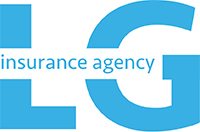Business Interruption insurance, or BI, is a fundamental component of any comprehensive insurance policies business owners purchase to protect themselves in the event of catastrophe. As businesses across the United States struggle with the impacts of the COVID-19 pandemic, among them shutdowns and restrictions that may seriously hamper sales and viability, many business owners are raising concerns about whether their BI policies, or any insurance policies at all, will assist in covering potential losses.
This pandemic presents an unprecedented event as it relates to insurance coverage for losses. Typically, Business Interruption insurance is used to compensate for income lost during the time it takes to repair physical damage to covered property- for example, after fire or water damage makes a business unable to run as normal. As a result, coverage is generally only triggered in most policies by physical damage occurring at the insured property. This makes determining business interruptions as a result of the pandemic as covered losses difficult for policyholders.
There is currently one known way to potentially recover losses due to COVID-19, and that is under the specific “infectious disease” coverage. Unfortunately there are still caveats, so as it stands, it’s still very difficult to predict whether the presence of the virus or threat of contamination will successfully trigger that needed business income coverage. Lawyers and experts currently attempting to navigate this extremely unusual set of circumstances expect that many insurance providers may oppose coverage of COVID-19 related BI claims.
As a result of this unprecedented scenario, where hundreds of thousands of businesses, not just here in the United States, but globally, have been forced to close temporarily or severely limit their capacity by government order, insurers and the insured are struggling to come to an agreement as to what is covered. Generally, “government shutdowns as a result of a virus,” is just not something that has been included in the protections. This has led to widespread litigation in courts internationally, making Business Interruption coverage an extreme hot button topic.
There are steps being taken to help resolve this situation and provide relief to business owners. The New Jersey State Legislature is currently considering New Jersey Bill A-3844, which makes insurance companies pay COVID-19 related BI claims, even when “viruses” are specifically excluded in policy language for the BI coverage. While this bill has not yet passed and is likely to be challenged due to the massive risk and exposure insurance companies will face from the intense volume of BI claims they would be required to pay, it does provide some hope and indication that state-level governments recognize the challenges business owners are facing, and seek to help them and their businesses recover.
In the meantime, while the litigation continues and lawyers take steps to build creative arguments that will assist in determining the presence or threat of COVID-19 contamination as constituting a form of property damage, business owners seeking to recover damages have a few options. They may take a look at the Civil Authority Coverage Clause associated with their policy and see if they are able to recover some damages that way, as the government has issued restrictions on a number of types of businesses. This also often contains a property damage requirement, so the means to file a claim may be murky, but is still possible. There is also Contingent Property Insurance or Dependent Property insurance that may be an effective avenue. This depends largely on whether the presence of COVID-19 or threat thereof is considered property damage- but as this is also known as “supply chain coverage” it has a good deal of potential.
What business owners can do now to protect themselves further and prepare for potential claims are as follows:
- Review all policies.
As with any loss or potential loss, it’s important for policyholders to be knowledgeable about their coverage and what it entails. This allows for a better plan and outline going forward, and to ensure that all policies are correct.
- Document everything, including all losses.
Having complete and thorough documentation of all COVID-19 related losses will make any claimant better prepared, and ready with support of claims.
- Stay informed.
As mentioned previously, there is current litigation regarding what insurers will be required to cover, along with potential relief available through state and federal programs. Staying aware of current regulations and restrictions relevant to your business and region are important to assure compliance.
- Mitigation.
Review suppliers and supply chains- have contingency plans in place in the event of a slow down or issue with needed supplies. Have a variety of suppliers as options. Take steps to demonstrate compliance with all regulations and communicate that compliance with clientele. (Emails/ website/ posted steps and protocols being taken to mitigate or prevent spread, etc.) Reassure customers that your business is taking proper safety measures.
- Keep track of all necessary documents that will assist with demonstrating losses, and make filing a claim easier and more complete.
Have accurate and up-to-date annual and current financial statements available. Monthly profit and loss statements, inventory reports, payroll statements, and so on. All documentation that supports your claim is important. This includes receipts and documentation of any materials needed to meet compliance and regulations- such as PPE and plexiglass barriers, etc.
These are difficult times indeed, for everyone globally. While this scenario is not going to continue indefinitely, we aren’t certain when things will get back to “normal.” In the interim, however, by taking steps to mitigate, prevent, and prepare for further issues, we can relieve some of the pressure and make certain that we are as prepared as possible going forward. While many small businesses have exhausted the PPP loans, many have been able to successfully pivot their businesses to new revenue sources, or have successfully built-out their e-commerce business model as a result of restrictions. The times are certainly unprecedented, but the New Jersey small business community is resilient. Moving forward is something we are bound to do, and build back stronger.


